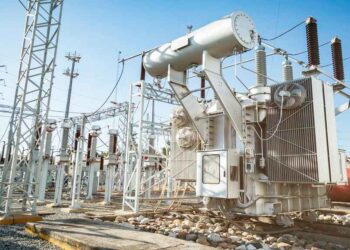Bidelek 4.0 will be developed in the Basque Country, helping to promote a greater decarbonisation of society, whose major lever for growth is the electrification of the economy.
More than 25 companies will take part in this ground-breaking project, offering a new technological benchmark on a global level as well as promoting the capital goods industry and energy infrastructures in the Basque Country.
After the success of Bidelek Sareak, which highlighted the value of smart meters and automated networks, Bidelek 4.0 will provide greater benefits for consumers and users of the electricity network.
The Basque Government’s Minister for Economic Development and Infrastructure and the Chairwoman of Ente Vasco de la Energía (EVE), Arantza Tapia, the Chairman of Iberdrola Group Networks Business, Armando Martínez, and the Provincial Government of Bizkaia Minister for Economic and Regional Development, Imanol Pradales, today signed a Partnership Protocol, underlining their commitment to continue to drive digital transformation in the distribution network in the Basque Country which began with Bidelek Sareak. The project, which goes under the name Bidelek 4.0, represents a joint investment of approximately 30.5 million Euros over the next three years.
The protocol signed today at the Torre Iberdrola outlines the roles for each of the parties:
- The Basque Government, through EVE, the Basque Energy Board, will be responsible for promoting the participation of companies from the region in the development of new technologies and their participation in their roll-out. They will be supervising the fulfilment of pledges regarding energy efficiency and savings and improved service quality for consumers.
- Iberdrola Distribución Eléctrica will head up the technological side of this digital transformation of the grid, making available its main assets in the Basque Country, ensuring that its investment underlines its position as a cutting-edge electricity company.
- The Provincial Government of Bizkaia will be contributing its promotional and technological development programmes to the projects, as well as offering support to demonstration projects.
At the presentation of the project, the EVE Chairwoman and the Basque Government’s Minister for Economic Development and Infrastructure, Arantza Tapia highlighted the capacity to find consensus among the public-private participants in order to ensure that the Basque Country can boast a world-leading level of digitisation, with a technology developed by Basque companies who have become international reference points in terms of smart electricity grids after Bidelek Sareak’s success.
For his part, Armando Martínez, the Chairman of Iberdrola Group Networks Business, said that “after the success of the first phase of the Bidelek project, which has positioned numerous companies at the forefront of the sector at an international level, we begin this second phase, going further with the digitisation of networks and continuing to create important benefits for our customers and society in general. I would like to highlight the fact that Bidelek is an initiative that exists within the framework of Iberdrola’s commitment to an ongoing implementation of smart grids, which has seen the company invest over 1.4 billion Euros in the state over recent years.”
Imanol Pradales, the Provincial Government of Bizkaia Minister for Economic and Regional Development, has also underlined the significance of continuing to forge alliances, working together in the energy sector which is of such strategic importance to the Basque Country, exploiting the region’s advantageous fiscal framework: “This is a sector that brings together driving-force companies and SMEs, with a high level of internationalization and a strong investment in R+D+i. In short, this is a highly competitive sector”.
The Bidelek 4.0 project highlights the Basque government’s commitment to driving industrial and technological development of future energy networks within the framework of the Industrialisation Plan approved by the Basque Parliament and the 3E2030 Energy Strategy, which seeks to diversify energy sources and reduce the use of oil derivatives.
The investment of over 30 million Euros required by this new roll-out of smart grids will be implemented by a new joint venture between Iberdrola and EVE, the Basque Energy Board. This investment will serve as an impulse for the development of local industry through the innovation and design of future equipment and solutions, allowing Basque industry to maintain its position at the forefront of technology worldwide.
The solutions developed through Bidelek 4.0 will have a great opportunity, as they will be used by Iberdrola in its commitment to implement more networks and smarter grids as its path toward advancing toward energy transition toward a decarbonised economy.
AMBITIOUS TARGETS
The main strategic aims of this initiative are:
• To ensure that the widest possible digitisation of electricity grids means an efficient integration of self-consumption and other distributed energy resources, offering new services to customers who are increasingly better informed and more aware of efficiency and sustainability.
• To show the path that will turn distribution networks into a vehicle capable of guaranteeing a transition toward clean and sustainable energy.
• To demonstrate the role of new technological solutions that increase the quality of the service and the added value that electricity offers customers.
• To put into practice the evolution of the current electricity distributor toward its future role as Distribution System Operators.
• To maintain Basque industry’s position as far as energy capital goods are concerned.
Ensuring an electricity grid that continues to be more reliable, flexible and digitised, supported by a regulatory framework, is the guarantee of a better future for everyone.
The quality of Iberdrola service has massively improved, with the time required to recover service after an incident halved. This is the result of working together on Bidelek and the significant investment in smart grids that has been made over recent years. Moreover, the majority of customer operations are carried out automatically and immediately.







































